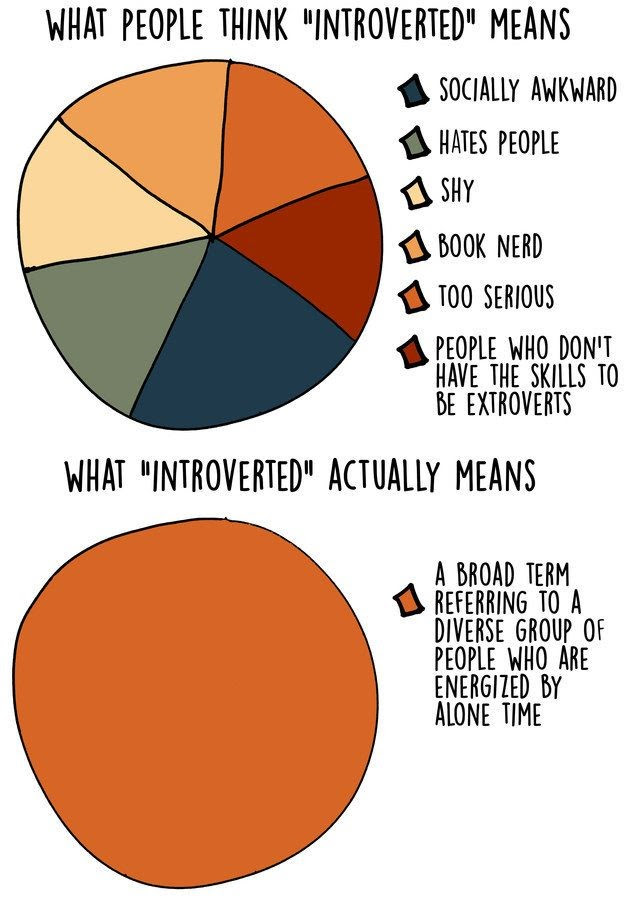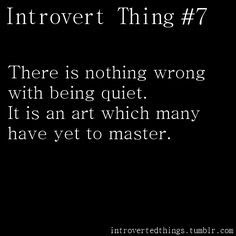Good nonprofit fundraising is based on relationships. We all know that.
And what does it take to build relationships?
It takes energy, effort, and often, face time. You know – that ‘meeting-in-the-flesh,’ ‘I-see-you,’ ‘I-can-read-your-body-language’ kind of time.
It looks easy for a lot of people.
But not so much for us introverts.
Fundraising can be hard when you’re introverted, shy, or uncomfortable in social situations.
Unfortunately, if you want to fully fund your nonprofit’s budget, you WILL have to get face-to-face with people.
What you need is the Introvert’s Guide to Fundraising.
Raise your hand if you’re an introvert
An introvert is someone who gets their energy from quiet time. They need time to themselves, away from people, to recharge their batteries.
They tend to be quiet, reserved, and introspective. They may also be shy or unsure of themselves in crowds. Sometimes they find it easier to express themselves in writing rather than in the spoken word.
I am an introvert. I know you may find that hard to believe, but it’s true.
In doing some research for this article, I actually learned a good bit about myself. I’m not shy like I thought, I’m reserved and like to observe before I interact. I’m not socially awkward, I just don’t like small talk and find it hard to do. (You have no idea how relieved I am to learn these things!)

As a teenager, I couldn’t walk into the high school library, because everyone would turn and look at me. I just couldn’t handle it. Strange, I know, but true.
What I found out about myself is that I’m an ambivert and I can stretch when I need to to raise money.
When I became a Development Director, the introvert was both a curse and a blessing.
The blessing: Being an introvert meant I was fine with working alone. I liked the quiet time to think and plan. I’m a good writer, so I could do a LOT armed with just my computer. I became an excellent grant writer and I raised hundreds of thousands of dollars through the mail because I knew how to write an appeal that would pull heart strings.
The curse: My introverted self liked to stay in the safety of my office. I got really, really good at doing things from behind my computer and avoided everything else (even though I didn’t realize that’s what I was doing). I did some events, and even though they were successful, it was exhausting because it was so far outside my comfort zone. It was a long time before I finally decided I would never raise big bucks unless I got face-to-face with major donors. And frankly, that terrified me.
Introverted Fundraising
If any of this sounds familiar, don’t worry – you’re not alone. I’ve been quite surprised over the years at the number of introverts I’ve met who work in fundraising. I wonder if it’s because we tend to be sensitive people and want to help others?
Being an introvert can be compounded by shyness, perfectionism, insecurity, low self esteem, and the inability to say “no,” also known as pleasing.
I find that most of these behaviors are habitual and most of the time we’re not even aware that we’re doing them. Unfortunately, none of this will work to your advantage as you try to fully fund your nonprofit so you can keep doing the good work you do. So if you’re serious about raising money and changing lives, you might want to start working on some of these so they won’t slow you down. Just saying.
At any rate, I want you to know that I became very successful as a Fundraising Introvert, and I believe you can too.
Here’s some of what I did:
1. Know yourself. The more you know your own likes and dislikes, strengths and weaknesses, the better you can work with them. When you need to stretch and spend time with people, find a way to prepare so you can be as comfortable as possible. And be sure to plan some down time afterward so you can recharge. I’m a team player, so for me, it was helpful to remember that donors were just people. Once I started meeting some of them and found out how nice they were and how much they cared about my nonprofit’s mission, I felt like it was “we” instead of “me vs them”. That helped a lot.

3. Take baby steps. Choose “safe” ways to get face to face with donors. For some introverts, inviting 3 or 4 donors for a tour of your facility is a good way to ease into a relationship. It’s low-key because all you’re doing is showing them around. There’s no pressure on you to ask them for anything. You might find that having a Board member join you for lunch with a donor they already know can take a lot of pressure off you to keep the conversation going. There are probably dozens of other ideas – get creative here and do something that works for you. No one should expect you to have a brilliant first meeting with a major donor if you’ve never done it before.
4. Take it one step at a time. Don’t try to leap ahead and go from no interaction with donors to suddenly being their best friend and getting a billion-dollar gift. Remember that relationships take time to develop, and if some of your donors are introverts too, they won’t be in a hurry to get to know you. Once you have an interaction with a donor, whether it’s a call, an email, a meeting, or something else, decide on the very next step. Don’t worry about steps 2 through 10, just focus on step 1. That will take some of the overwhelm out of it.
5. Celebrate the wins. Alone. And in your own home. Just kidding. But do celebrate accomplishments and things that go right. Celebration could look like a special meal or a chocolate milkshake – you know what feels like a treat to you.
Introverts CAN be successful at raising money. I’m living proof.
Just follow this Introvert’s Guide to Fundraising and you’ll be fine.
Stay focused on the mission of your nonprofit and why it matters to you, and that will help keep you motivated. Then make sure you get enough time just for you to re-energize yourself.
Oh, and if you want a laugh, I’ve created a Pinterest Board just for introverts. Check it out.







I just recently found out I am an introvert about a year ago(I’m 43 now) from someone at the church I belong to.
Til then I never heard of the word, but it was detected & brought to my attention at church.
My biggest struggle would be with family, they would be like “whatever”, & try to force me to be different, which has been very tormenting all of my life. Up til now, I thought I was really a selfish, self centered person, mainly because I was taught I was, not because I felt that way. Because honestly I don’t feel selfish or self centered, I just feel all the above symptoms, & I when I try to be different, my timing is horrible, & like always I end up looking stupid. When I be quiet & listen, it works more in my favor, & still I’m ready to move around & away from everyone. At times, my adrenaline is pumping, & I will talk alot from excitement, other than that I want to go home, because I get real nervous during conversation, even though I try to play it off.. Vulnerability drives me crazy, for real, maybe partly because I’m a man, & also an introvert.
How do I adjust to accepting being an introvert? It has been a long tormenting battle. Now that I know that I don’t have to fight it anymore, it feels strange.
Concerning the family, what do I do? They won’t accept or respect me being an introvert.
Every since I’ve learned about being an introvert, it has literally been healing to my soul.
Funny thing is, my grandparents & aunt told me I used to hide when I was a baby. They tell me that once I hid so well that they called the police, & the police found me in the bathroom laying in an empty bathtub on my back just looking up with my eyes open.
Sounds like proof of a natural born introvert to me.
I think you have to find a way to get along with your family – that’s what I had to do. And find a way to be at peace with who you are. There’s nothing wrong with being an introvert. The more we can embrace who we are, the better we can do the work we’re here to do in the world.